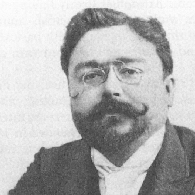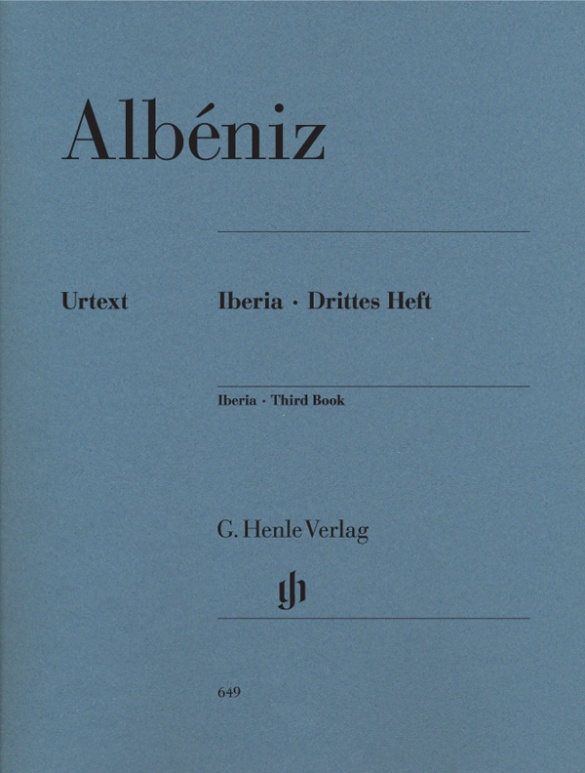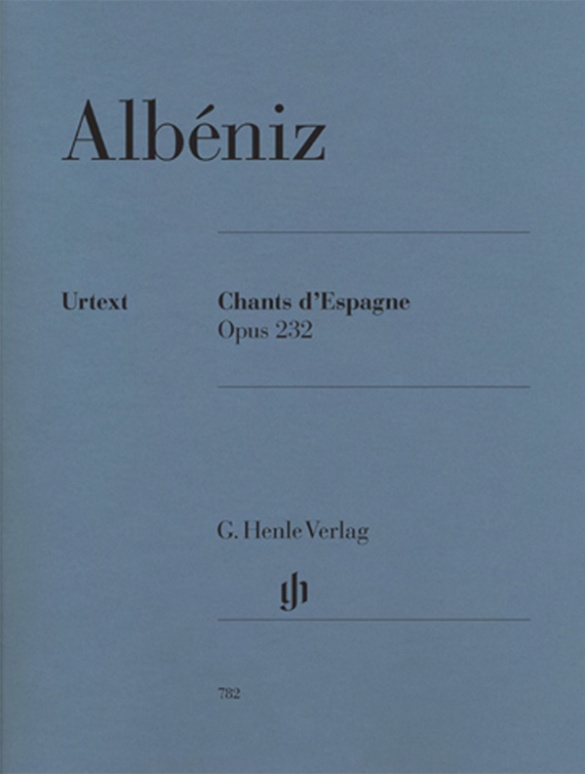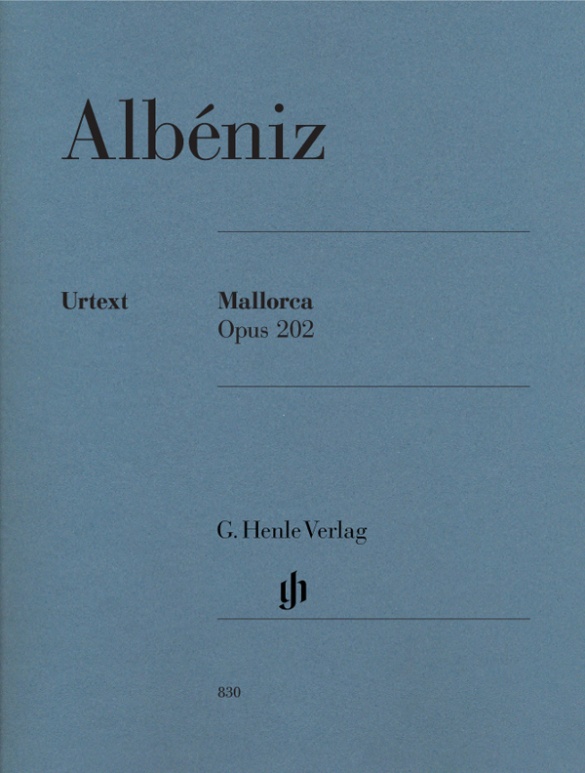Isaac Albéniz
Iberia · Third Book
Since their publication as Urtext editions, the first two volumes of “Iberia” issued by G. Henle Publishers have become an established part of the pianists’ world. Now comes the third book, in which Albéniz once again fuses his knowledge of European classical music with elements of Spanish folk music. In “El Albaicín” he evokes the mysterious atmosphere of the gypsy quarter in Granada, followed by hints of temperamental Flamenco in “El Polo”. At the end, Albéniz depicts the exuberant mood of a former Jewish quarter in Madrid (“Lavapiés”); in so doing he intersperses the music with some dissonant dashes of colour, an allusion to an organ grinder.Read more about this edition in the Henle Blog.
内容/詳細
作曲家について

Isaac Albéniz
He numbers among the most important Spanish composers. His oeuvre consists predominantly of piano music and stage works.
| 1860 | Born in Camprodón (Gerona province) on May 29; soon thereafter his family moves to Barcelona; first piano instruction with his sister at age three and a half, first public performance at age five, subsequent piano studies with Narciso Oliveras. |
| from 1867 | Eventful youth due to concert tours with his father and sister to Paris, the Spanish provinces, then on his own to Puerto Rico and Cuba. |
| 1876–79 | Studies in Brussels. |
| 1883–86 | Studies composition in Barcelona with Felipe Pedrell, who persuades him of the value of Spanish folk music. This results in piano compositions such as “Recuerdos de viaje,” Op. 71 (1886–87); “España: Seis hojas de album,” Op. 165 (1890); “Cantos de España,” Op. 232 (1891–94). |
| 1889 | Breakthrough as a pianist, concertizing in Paris and London. |
| 1890–93 | Engaged in London by the agent Henry Lowenfeld; operetta “The Magic Opal” (premiere 1893). |
| 1893 | Relocation to Paris, studies with Vincent d’Indy and Paul Dukas. |
| 1895/96 | Premieres in Barcelona of his operas “Henry Clifford” (1895) and “Pepita Jiménez” (1896) with Spanish colorings in the libretti and music. |
| 1898–1903 | He plans the trilogy “King Arthur” (“Merlin,” “Lancelot,” “Guenevere”), of which just “Merlin” is completed; concert performance of the original version does not take place until 1998. |
| 1905–08 | Composes “Iberia,” one of his chief works for piano, in which he reworks the sounds and rhythms of Spanish folk music. |
| 1909 | Death in Cambô-les-Bains (Basses-Pyrénées) on May 18. |
校訂者や運指担当者について

Norbert Gertsch (校訂)
Dr. Norbert Gertsch, born in 1967 in Rheinkamp/Moers, studied piano solo at the Mozarteum in Salzburg and read musicology and philosophy at the Paris Lodron University in Salzburg and the Ruperto Carola University Heidelberg on a scholarship from the “Studienstiftung des Deutschen Volkes”. In 1996 he wrote his doctoral thesis on Ludwig van Beethoven’s Missa solemnis (as part of the New Complete Edition) under Ludwig Finscher.
In the following year, he began to work at G. Henle Publishers, initially as an editor for electronic publishing. After working on a two-year project (1999–2000) sponsored by the German Research Foundation (DFG) preparing a new Beethoven Catalogue of Works, he became a scholarly editor at G. Henle Publishers. In 2003 he became Editor-in-Chief, in 2009 Deputy Managing Director and Head of Publishing. As of 1 January 2024, the Executive Board of the Günter Henle Foundation has appointed Dr. Norbert Gertsch, as the new managing director, succeeding Dr. Wolf-Dieter Seiffert.
Gertsch has published many Urtext editions for G. Henle Publishers, including volumes for a new edition of Beethoven’s Piano Sonatas together with Murray Perahia.
製品安全に関する情報

G. Henle Verlag
製品の製造元に関する情報はこちらでご覧いただけます。G. Henle Verlag
Forstenrieder Allee 122
81476 München
info@henle.de
www.henle.com
おすすめ
autogenerated_cross_selling
このタイトルを含む他の版





